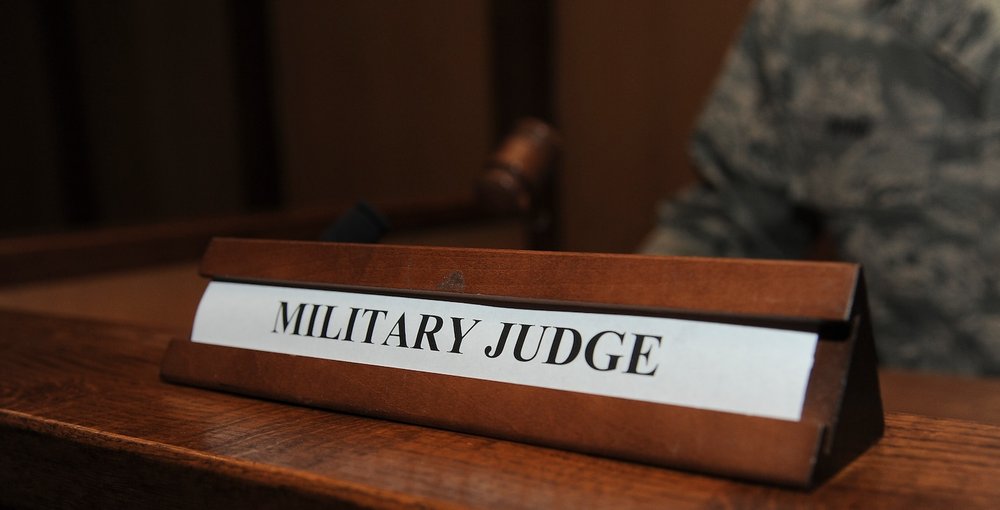On Dec. 8, 2017, the Navy JAG Corps celebrated its golden anniversary. Throughout this milestone 50th year, we will periodically look back on important breakthroughs and events that occurred since the organization’s inception.
In 2007 – as its litigation practice was growing increasingly complex – visionary Navy JAG Corps leaders established the Military Justice Litigation Career Track (MJLCT), which is designed to develop and retain talented litigators. The MJLCT program allows judge advocates to spend most of their career in the courtroom, progressing through litigation assignments of increasing responsibility as defense counsel, prosecutor, and military judge. Now, more than 10 years after the creation of the MJLCT program, the Navy is reaping countless benefits. In 2007 – as its litigation practice was growing increasingly complex – visionary Navy JAG Corps leaders established the Military Justice Litigation Career Track (MJLCT), which is designed to develop and retain talented litigators. The MJLCT program allows judge advocates to spend most of their career in the courtroom, progressing through litigation assignments of increasing responsibility as defense counsel, prosecutor, and military judge. Now, more than 10 years after the creation of the MJLCT program, the Navy is reaping countless benefits.
The career track has grown into a robust inventory of 79 competitively-screened litigators. Officers selected for the track in 2007 and 2008 as junior or mid-grade officers have matured into senior officers, and they provide an extraordinary nucleus of litigation expertise. MJLCT judge advocates are currently serving as trial and defense counsel; Victim’s Legal Counsel; members of the Trial and Defense Counsel Assistance Programs; executive and commanding officers; trial judges on the Navy-Marine Corps Trial Judiciary; and appellate judges on the Navy-Marine Corps Court of Criminal Appeals. Because this innovative program was such a success, the National Defense Authorization Act for Fiscal Year 2018 requires all branches of the military to pilot their own similar program. The career track has grown into a robust inventory of 79 competitively-screened litigators. Officers selected for the track in 2007 and 2008 as junior or mid-grade officers have matured into senior officers, and they provide an extraordinary nucleus of litigation expertise. MJLCT judge advocates are currently serving as trial and defense counsel; Victim’s Legal Counsel; members of the Trial and Defense Counsel Assistance Programs; executive and commanding officers; trial judges on the Navy-Marine Corps Trial Judiciary; and appellate judges on the Navy-Marine Corps Court of Criminal Appeals. Because this innovative program was such a success, the National Defense Authorization Act for Fiscal Year 2018 requires all branches of the military to pilot their own similar program.
“The MJLCT is thriving and still evolving, as the military justice docket brings new and different challenges each year,” said Capt. Moira Modzelewski, chief judge of the Department of the Navy. “We are constantly working to advance our professionalism, our courtroom practice, and our zealous representation of clients.” “The MJLCT is thriving and still evolving, as the military justice docket brings new and different challenges each year,” said Capt. Moira Modzelewski, chief judge of the Department of the Navy. “We are constantly working to advance our professionalism, our courtroom practice, and our zealous representation of clients.”
The 2018 MJLCT board will be held in late March, and, after a rigorous review of applicants, a new slate of officers will be added to the career track. The 2018 MJLCT board will be held in late March, and, after a rigorous review of applicants, a new slate of officers will be added to the career track.
